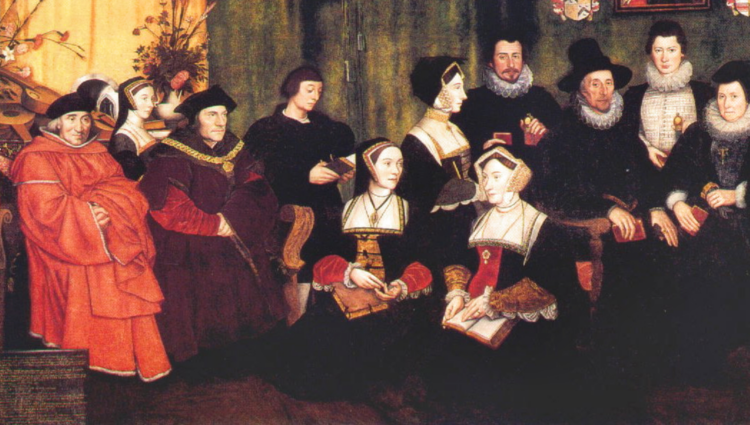Friendship is a receptive disposition of the soul which is ready to act for the good of the other when called upon, but which does not demand to be called upon. A man has to respect the freedom of his friend, or else a man will end up seeking out his own will to the detriment of the friendship and perhaps also to the detriment of his friend.
“Friendship he seems born and designed for; no one is more open hearted in making friends or more tenacious in keeping them, nor has he any fear of that plethora of friendships against which Hesiod warns us. The road to a secure place in his affections is open to anyone. In the choice of friends he is never difficult to please, in keeping up with them the most compliant of men, and in retaining them the most unfailing. If by any chance he has picked on someone whose faults he cannot mend, he waits for an opportunity to be quit of him, loosening the knot of friendship and not breaking it off… In a word, whoever desires a perfect example of true friendship, will seek it nowhere to better purpose than in More.”[1]
Erasmus wrote this description of his good friend Sir Thomas More in a letter to their mutual friend, Sir Ulrich von Hutten, in 1519. At the time, More was forty-two, he had just completed his first year of service in the court of King Henry VIII, and he and Erasmus had been friends for twenty years. It is a remarkable letter, full of delightful biographical details about Sir Thomas More, but I have always found this paragraph about friendship particularly striking. Erasmus praises More as the perfect example of true friendship. Even if Erasmus is exaggerating when he says perfect, I want to take him seriously when he holds More up as an example of true friendship. I think he could be right on that count.
But Aristotle’s specter appears on the horizon and I hesitate. Aristotle’s treatment of friendship [2] is often praised as the best the ancient world has to offer. He divides friendship into three kinds, according to the three ways in which things can be lovable: the useful, the pleasant, and the good.[3] Useful and pleasant friendships are almost the same, except the first seems to belong more to business relationships and the second to youth. In neither case is a friend loved for himself, but for the goods he brings about, whether they be useful or pleasant things.
Although Aristotle begins by describing these two kinds of friendship, he eventually reduces them to resemblances of friendship.[4] In the end, only friendship based in common virtue and mutually acknowledged goodwill remains.
Of this friendship, Aristotle writes that it belongs most to those who have experience of each other and the habit of living together.[5] On this account he argues that although friends are goods in themselves, necessary both for life and for the practice of virtue, one should not expect to have very many and certainly no more than it would be feasible to live with. Moreover, of these friends with whom you live, they must be friends not only with you but with each other as well.[6] So, given the scarce number of men (in Aristotle’s estimation) who are good enough in the first place to be loved on account of their virtue, and considering the difficulties of finding suitable living companions who all share in this kind of friendship, it doesn’t seem possible to have more than one true friend in a lifetime, and it wouldn’t be surprising if one never found a friend of this kind at all.
I think Aristotle is describing an exceptional kind of friendship which does exist and which is incredibly beautiful when it takes place, but which is not the norm. And I don’t think we should measure all our friendships against what he describes as perfect or complete friendship because they don’t all need to be that kind of friendship in order for them to be worthy of the name. Furthermore, he doesn’t take into consideration another kind of friendship, which is meaningful and more likely to attain in the course of a person’s life. I would propose a different tripartite division of friendship.
On one hand, there are acquaintances. These are Aristotle’s friendships of pleasure and of use. These are the people we meet at conferences and summer camps, follow on Instagram and Twitter, connect with on LinkedIn, and so on. Acquaintances are numerous and indispensable to modern life. Often mutual goodwill is signaled through retweets or facebook likes. They are the very people that could help us to land our next job, so we add their business card to the mountain of business cards on our desk, and go on to the next networking event. Such is life.
On the other hand, there are bosom friends. These correspond approximately to Aristotle’s friendship based upon virtue, or what Montaigne describes as perfect friendship, or what Aelred of Rievaulx calls spiritual friendship.[7] The ancient adage “a friend is another self” applies most of all to these kinds of friendships. Montaigne exceeds Aristotle in rhetorical flourish, and so I will look to him for a description of the sublimity of this kind of friendship: “In the friendship that I speak of, our souls mingle and blend with each other so completely that they efface the seam that joined them and cannot find it again.”[8] A little later in the essay Montaigne goes on to say, “It is not in the power of all the arguments in the world to dislodge me from the certainty I have of the intentions and judgements of my friend…. [N]ot only did I know his soul as well as mine, but I should certainly have trusted myself to him more readily than to myself.”[9] These friendships are exceedingly rare (Montaigne says they occur “once in three centuries” [10]), and they are most of all a function of grace.
We should be careful not to confuse this kind of friendship with common friendships, which I will turn to in a moment. Aristotle is right when he says that friendships break apart when they are revealed to be something other than what the friends thought they were.[11] Therefore it’s best not to inflate our common friendships in our minds so that they seem to be bosom friendships, lest we lose them all together. Moreover, we should be very careful not to desire these friendships for ourselves.
Simone Weil writes, “To desire friendship is a great fault…. Friendship is not to be sought, not to be dreamed, not to be desired; it is to be exercised (it is a virtue).”[12] Weil can be a little hyperbolic. I would not say that to desire friendship is a great fault, but it is a fault nonetheless. It’s noble to desire something as good and beautiful as a bosom friend, but desire which arises from an acute sense of lack is more characteristic of erotic love than of friendship. And besides, common friendships are beautiful in their own right.
But somewhere between acquaintances and bosom friends there are friends of substance, or common friends—forgive the unwieldy nomenclature. These are friendships that are more meaningful than our acquaintanceships, but which do not attain the complete fusion of wills that Montaigne attributes to perfect friendship. These are the people normally signified by the simple term “friend.” If friendship is rightly considered a virtue, as I think it is, then that means it’s a habit to be cultivated. Bosom friends are rare gifts, but it’s an attainable skill to learn how to turn some of our acquaintances to true friends. And I think this is a skill that Thomas More was particularly good at and a skill that needs to be rehabilitated in the present moment.
These friends, like Aristotle’s virtuous friends, desire the good for one another. And more than simply desiring the good for one another, they do things to try to bring it about. It’s not necessary that they actually live together, but they should live reasonably near each other so that they are able to lend a cup of sugar for a late night baking endeavor or other such deeds. But more than incidental kindnesses of this sort, the true province of a friend seems to be in giving good advice. This takes the form of both praising a job well done and in correcting faults. Giving good advice distinguishes friendships of substance from mere acquaintanceships since both kinds will also be pleasant and may entail practical benefits.
In order to give good advice, however, one must first of all learn how to listen well. Listening involves turning the attention of our whole being towards the other person. It’s what I understand Martin Buber to mean when he writes of entering into the world of relations by speaking and responding to the primary word I-Thou.[13] Buber uses “speaking” as a metaphor to describe the cultivation of a disposition of receptivity to the other. The world of relations that Buber writes of is not a mystical arena, but the fabric of the everyday.[14] We are constantly on the threshold between the world of relations and the world of objects, and it’s our responsibility to enter frequently into the world of relations by listening with our whole being to those who address us.
Friendship is a receptive disposition of the soul which is ready to act for the good of the other when called upon, but which does not demand to be called upon. A man has to respect the freedom of his friend, or else a man will end up seeking out his own will to the detriment of the friendship and perhaps also to the detriment of his friend. Yet, once a friend has called upon us to listen we have a responsibility to respond to him regardless of whether this response requires us to rejoice with his joys, sorrow with his sorrows, or something else.
In addition to a capacity for listening, a second pre-requisite for being a good friend is self-knowledge. Self-knowledge is also gained in the context of good friendships, which goes to show that one will become a better friend the more one is a friend. But the importance of self-knowledge prior to friendship is that we will be able to discern true friends from false ones. Moreover, the more aware we are of our own faults, the more easily we will be able to accept the corrections of our friends. And, generally, the better we know ourselves the more adept we will be at relating to others in a healthy way.
Common friendships are the heart of a healthy polity. Aristotle begins his considerations on friendship with the observation that without friends it’s unlikely a man would choose to continue living.[15] He leaves it unclear what type of friends he means when he says this, but leaving the problem of his distinctions aside, it seems right that life without the pleasant and meaningful concord of friends isn’t much worth living. The rising suicide rates and mental health problems indicate to many a crisis,[16] and I am willing to speculate that it’s a crisis of friendship.
Where data was available regarding the factors which contributed to suicide, the CDC reports that 42% had a relationship problem.[17] We need to figure out how to enter more deeply into relation with people. This has to be done with a spirit of intentionality, but without desperation. We have to be able to let a relationship go without entering into the vice of jaded bitterness if the other person isn’t ready or willing to reciprocate.
It’s equally important, however, to take things a step at a time. Meaningful friendships take a long time—years—to develop. The bonds of trust have to form. We should test budding friendships and embrace them cautiously so that we are not surprised to discover the true character of our friends is something other than what we had supposed. Not everybody has to be a friend. Acquaintances, too, are good and pleasant in their own right, even if they are not sufficient for living a happy life.
Although the dissolution of Thomas More’s friendship with King Henry VIII is perhaps the main reason we still remember him, as Erasmus’s letter and More’s whole life show, More’s friendship wasn’t limited to princes.
Shakespeare co-wrote a play which remembers More as just as much a friend to the common man as he was to the king. In the fifth act of the play, a poor woman laments More’s arrest with the couplet, “Ah, gentle heart, my soul for thee is sad; / Farewell, the best friend that the poor e’er had.”[18]
Moreover, in 1529, just after a harvest had been completed which ended the previous year’s famine (during which More fed 100 people a day at his home), a fire destroyed his barns and those of several neighbors as well. Upon hearing the news, he writes to his wife, Lady Alice, and instructs her to first go to the chapel with the household and thank God for all that He has given and all He has taken away. Then, she is to see what the neighbors have lost and how they may be helped. After that, she is to determine the best course of action going forward and if they must dismiss some of the servants it isn’t to be done unless they can also find them new masters.[19]
These are the sorts of actions that follow when friendship is exercised as a virtue. Erasmus wrote that Thomas More seemed “born and designed for friendship” sixteen years before More died at the hands of King Henry VIII, More’s long-time friend, whom More was never willing to deceive with flattery. And so he died the king’s good servant, the king’s good friend, but God’s first.
This essay was first published here in July 2019.
The Imaginative Conservative applies the principle of appreciation to the discussion of culture and politics as we approach dialogue with magnanimity rather than with mere civility. Will you help us remain a refreshing oasis in the increasingly contentious arena of modern discourse? Please consider donating now.
Notes:
1 A Thomas More Source Book, edited by Gerard Wegemer and Stephen Smith (Catholic University of America, 2004), p. 6.
2 For Aristotle’s treatment of friendship, see Aristotle’s Nicomachean Ethics, translated by Robert Bartlett and Susan Collins (U of Chicago P, 2012), pp. 163-209.
3 Ibid., p. 166.
4 Ibid., p. 170.
5 Ibid., p. 171.
6 Ibid., p. 206.
7 Aelred of Reivaulx, Spiritual Friendship (Liturgical Press, 2010).
8 Michel Montaigne, “Of Friendship,” The Complete Works, translated by Donald Frame (Everyman’s Library, 2003), p. 169.
9 Ibid., p. 170.
10 Ibid., p. 165.
11 Aristotle, p. 192.
12 Simone Weil, Gravity and Grace (Routledge Classics, 2002), p. 67.
13 Martin Buber, I and Thou, translated by Ronald Gregor Smith (Charles Scribner’s Sons, 1958), p. 4.
14 Ibid., p. 130.
15 Aristotle, p. 163.
16 According to a NBC News article from June 2018, the CDC reports that suicide rates have gone up more than 30% in the United States since 1999.
17 Ibid.
18 A Thomas More Source Book, p. 145.
19 A Thomas More Source Book, p. 180-1.
The featured image is a painting of Sir Thomas More, his father, his household and his descendants (1593) by Rowland Lockey, after Hans Holbein the Younger. It is in the public domain, courtesy of Wikimedia Commons.










